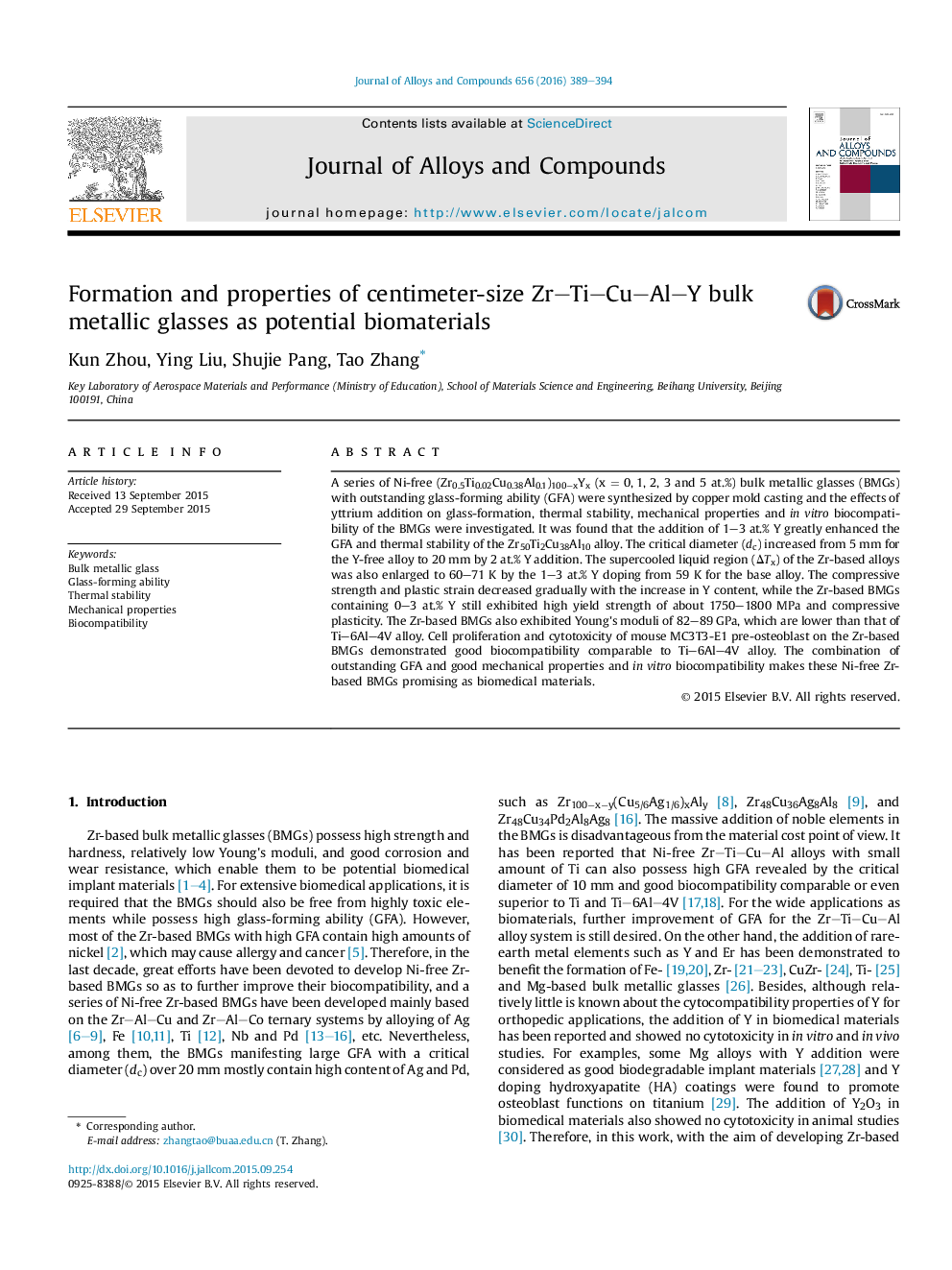| Article ID | Journal | Published Year | Pages | File Type |
|---|---|---|---|---|
| 1607681 | Journal of Alloys and Compounds | 2016 | 6 Pages |
Abstract
A series of Ni-free (Zr0.5Ti0.02Cu0.38Al0.1)100âxYx (x = 0, 1, 2, 3 and 5 at.%) bulk metallic glasses (BMGs) with outstanding glass-forming ability (GFA) were synthesized by copper mold casting and the effects of yttrium addition on glass-formation, thermal stability, mechanical properties and in vitro biocompatibility of the BMGs were investigated. It was found that the addition of 1-3 at.% Y greatly enhanced the GFA and thermal stability of the Zr50Ti2Cu38Al10 alloy. The critical diameter (dc) increased from 5 mm for the Y-free alloy to 20 mm by 2 at.% Y addition. The supercooled liquid region (ÎTx) of the Zr-based alloys was also enlarged to 60-71 K by the 1-3 at.% Y doping from 59 K for the base alloy. The compressive strength and plastic strain decreased gradually with the increase in Y content, while the Zr-based BMGs containing 0-3 at.% Y still exhibited high yield strength of about 1750-1800 MPa and compressive plasticity. The Zr-based BMGs also exhibited Young's moduli of 82-89 GPa, which are lower than that of Ti-6Al-4V alloy. Cell proliferation and cytotoxicity of mouse MC3T3-E1 pre-osteoblast on the Zr-based BMGs demonstrated good biocompatibility comparable to Ti-6Al-4V alloy. The combination of outstanding GFA and good mechanical properties and in vitro biocompatibility makes these Ni-free Zr-based BMGs promising as biomedical materials.
Keywords
Related Topics
Physical Sciences and Engineering
Materials Science
Metals and Alloys
Authors
Kun Zhou, Ying Liu, Shujie Pang, Tao Zhang,
